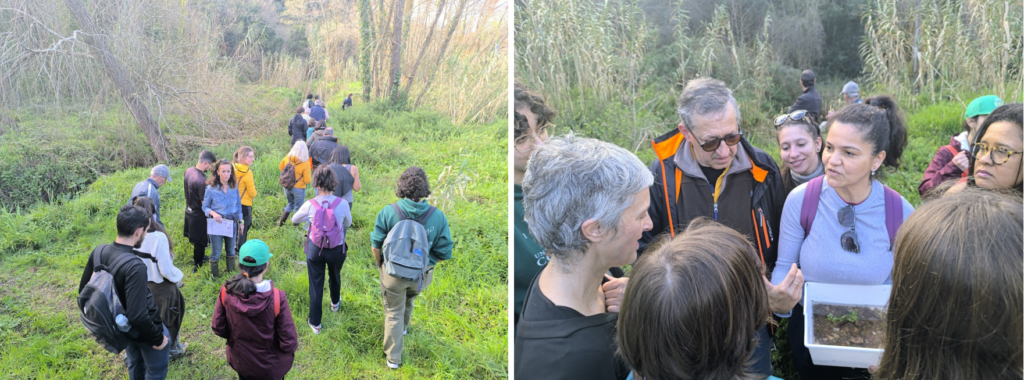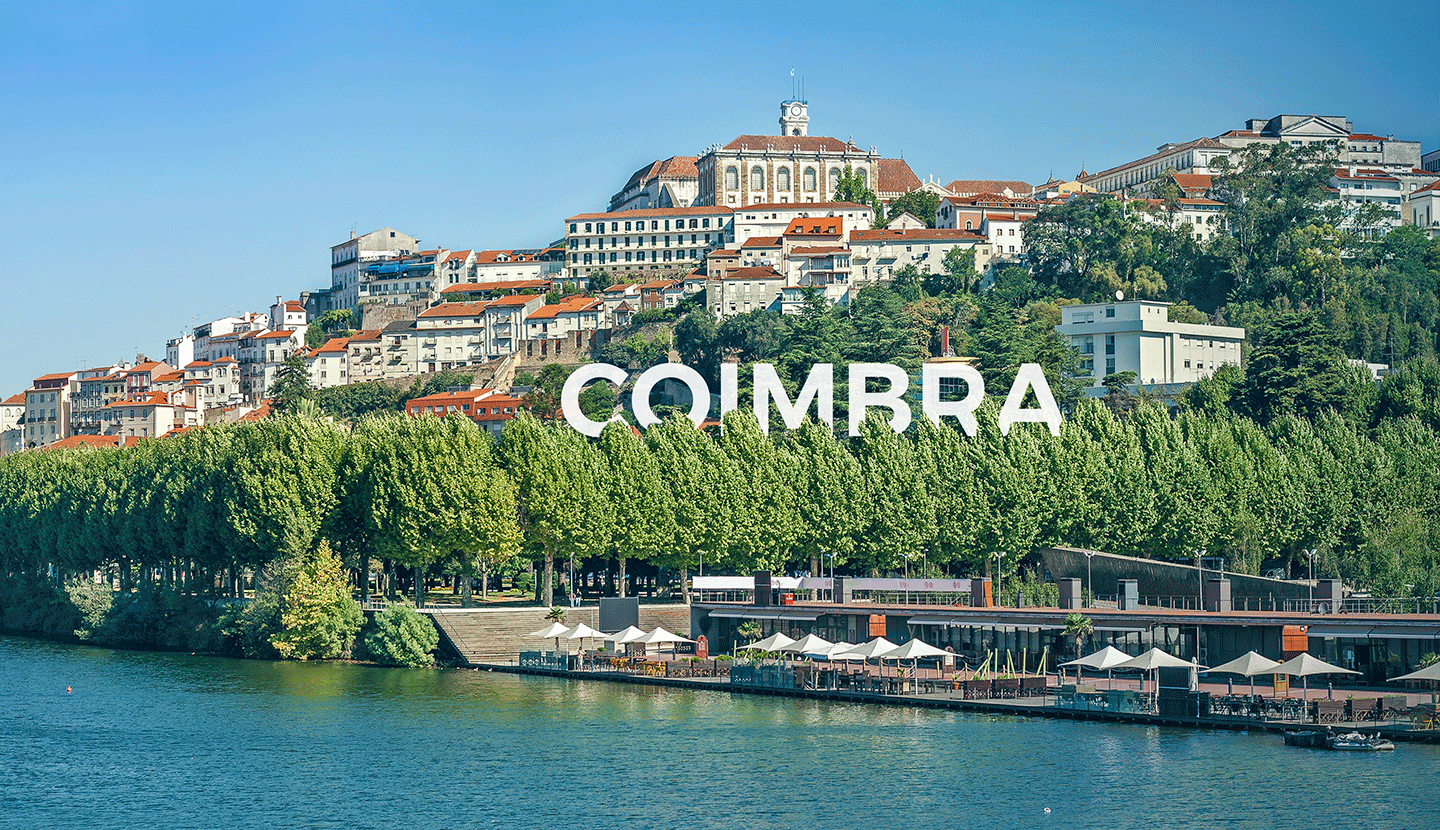
A network of ~100 streams and small rivers will be constituted in the 5 Research cities.
Coimbra
Coimbra is the largest city of central Portugal (~150,000 inhabitants) and holds one of the oldest universities in the world (733 years) with >25,000 students. The university along with its University Hospital and new technology industries constitute the major employers of the city. The population is young due to the presence of the university, but, the low birth rate in the country is also reflected in an aged population.
The city is close to the mountains as well as to the sea, being approximately 100 kms away from “Serra da Estrela”, the highest Portuguese mountain (with 2000 m a.s.l.) in Continental Portugal, and a ~40 kms distance to the Atlantic Ocean,
Coimbra is crossed by Mondego, the largest river in the Portuguese territory. Due to its hilly character, hundreds of small streams and respective catchments also across the city, draining off into the Mondego. This makes the left as well as the right margins an ideal setting for an OneAquaHealth research site.
In the old city the river and streams have been highly modified and are now covered or channelized; while in the more recent districts the streams are still uncovered, with some riparian vegetation, but also with many non-native and invasive plant species. In the city outskirts small streams run through a mixture of urbanized, industrialized and agricultural fields and there is still evidence of water pollution in some streams. There is no official monitoring of the ecological quality of these streams, and they are not under protection.
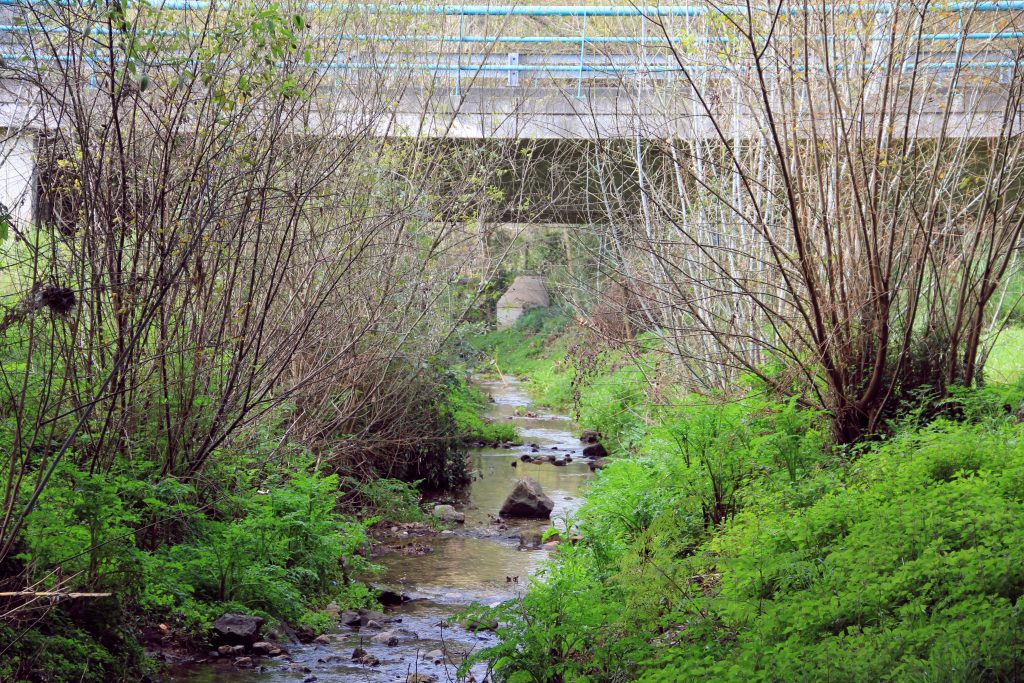
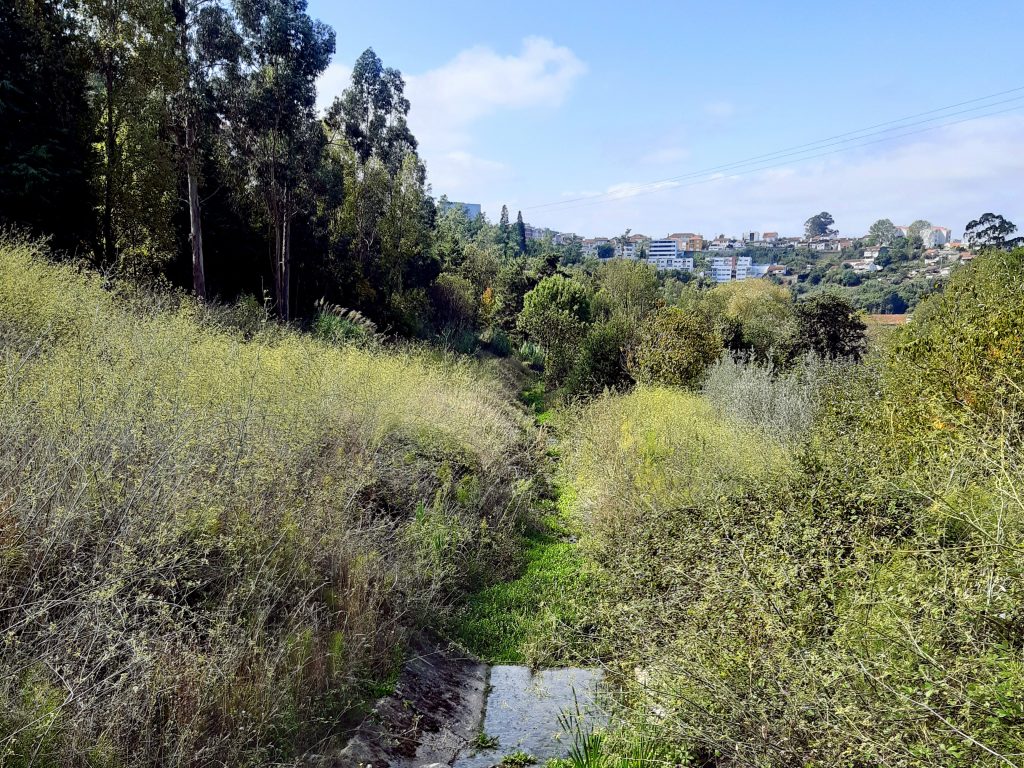
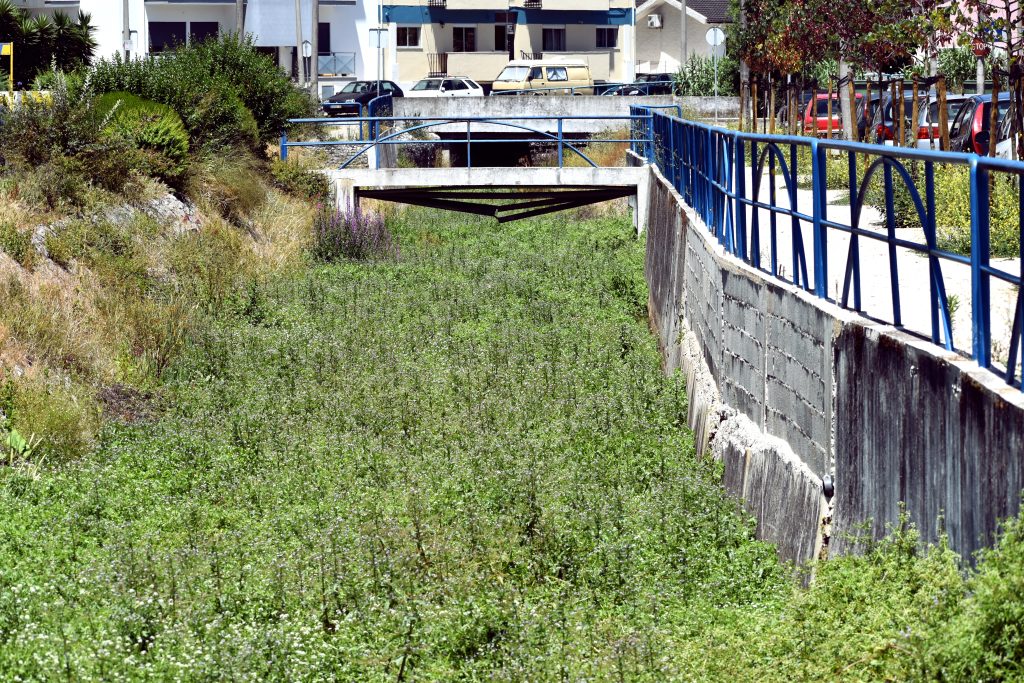
Focus group
A focus group discussion on “Protecting urban aquatic ecosystems to promote OneHealth” was held in Coimbra research site on March 16, 2024, National Climate Change Awareness Day. Twelve citizens attended the event, which was held outside next to an urban stream. Following a presentation near the urban stream, the participants’ values, thoughts, beliefs, needs, and expectations regarding these urban stream ecosystems, were gained through questioning and reflection activities at a picnic table adjacent to the stream.
It was a pretty fun thing to do. Everyone was engaged and enthusiastic. We learned a lot together.
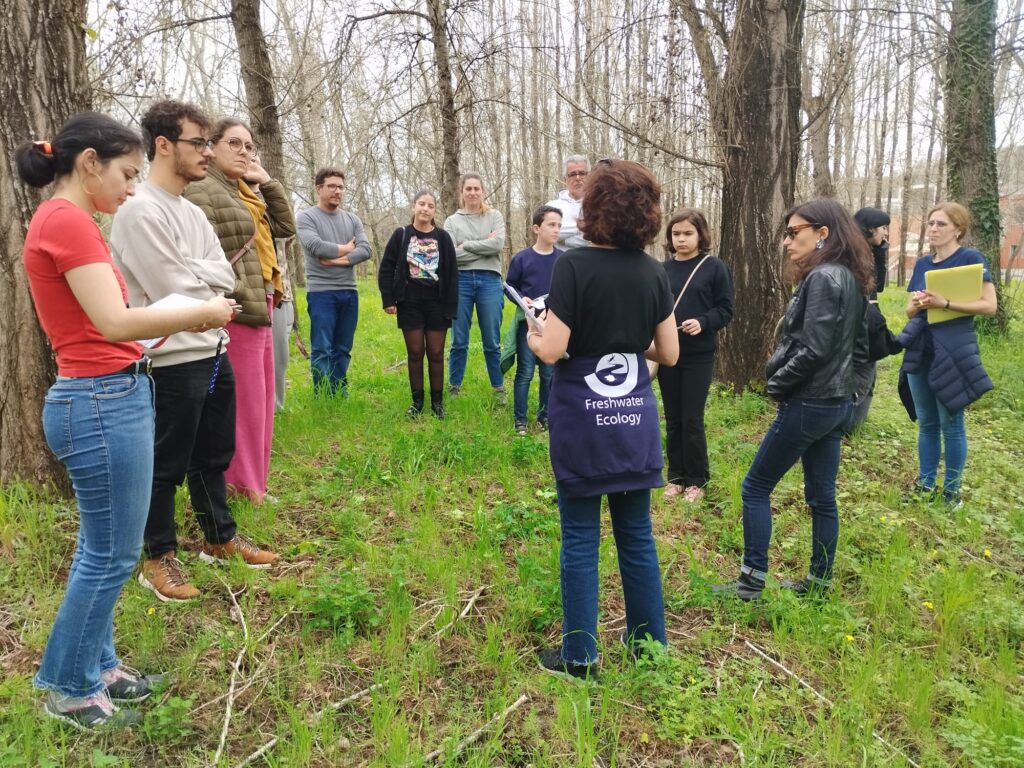
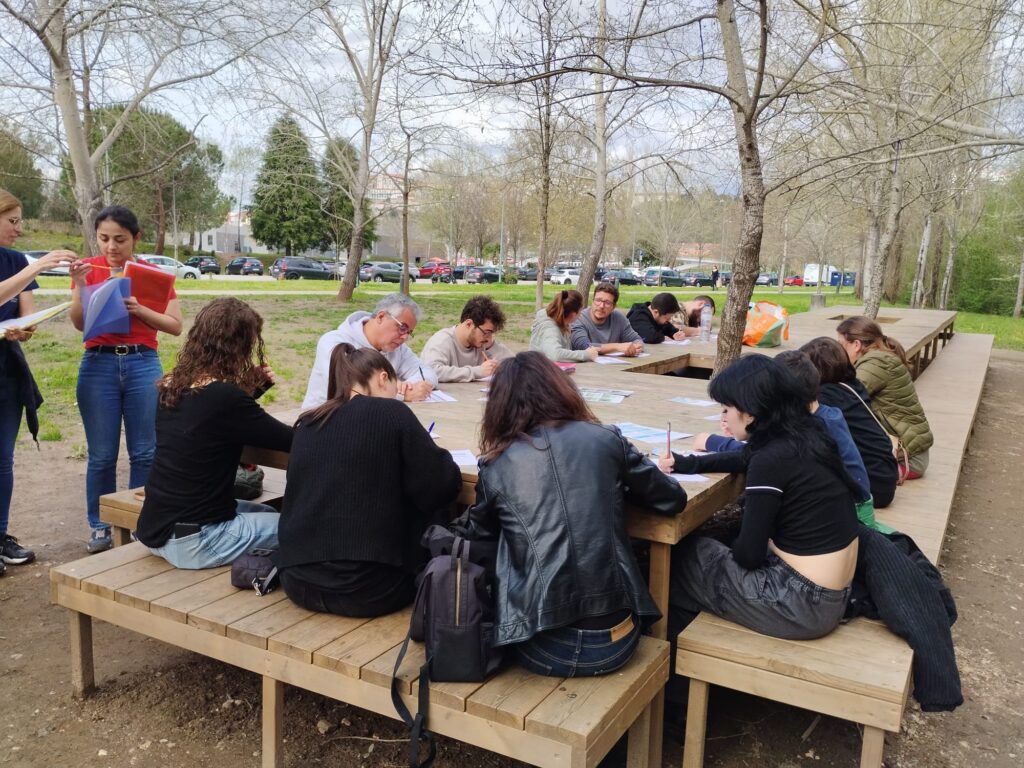
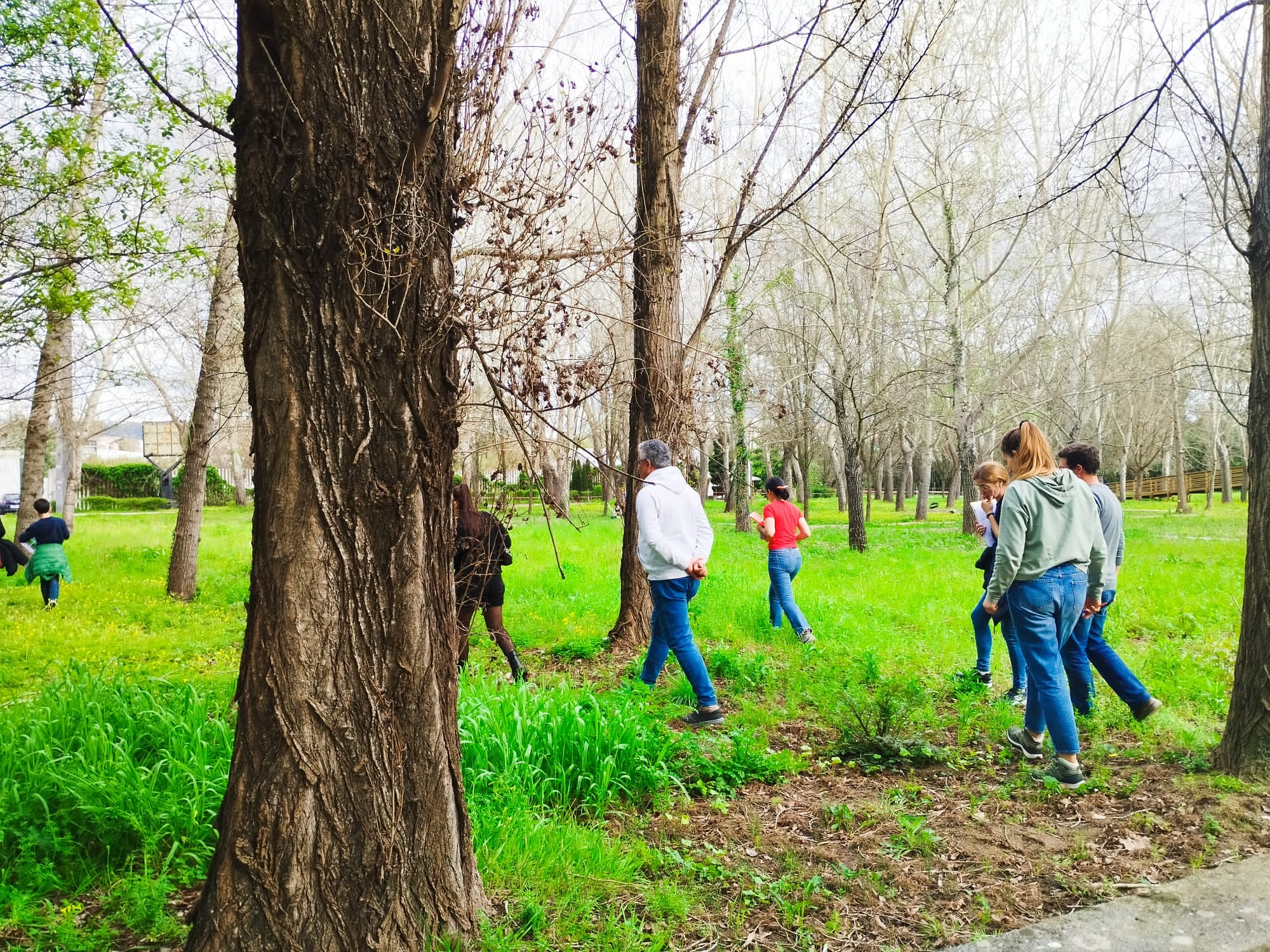
Rediscovering Ribeira de Eiras: A Community Walk Through Time and Nature
On Sunday, November 10th at 3 p.m., local residents of Bairro de Santa Apolónia (Coimbra) gathered for a community walk along an urban stream (Ribeira de Eiras), reconnecting with its biodiversity, history and reflecting on the importance of this ecosystem to them and its transformation over time.
Seventeen participants (including children and older adults) met at the ‘Ponte dos Amores,’ or ‘Bridge of Loves,’ where they began their walk with the Freshwater Ecology Lab Team from University of Coimbra (MARE – ARNET), appreciating the local biodiversity and exchanging memories of the stream’s past. Participants shared that they have a habit of walking along the stream to relax, some of them taking their dog with them.
Participants shared recollections of a time when the area was still part of farms and with few constructions, with many people fishing in the stream—a rare sight today.
From the 1970’s the urban development reshaped the area: the once free-flowing stream was channelized and confined between buildings and roads, fundamentally altering its natural flow and ecology.
Despite these changes, walkers observed signs of resilience in the ecosystem, noting a family of mallard ducks, some fish, insects, and even native ash trees upstream to the main developed are, that may have endured for generations.
Participants expressed their will to help improving stream ecosystem and having a longer stretch available to walk in the margins. Overall, they appreciated the event, which fostered mutual learning and connection.
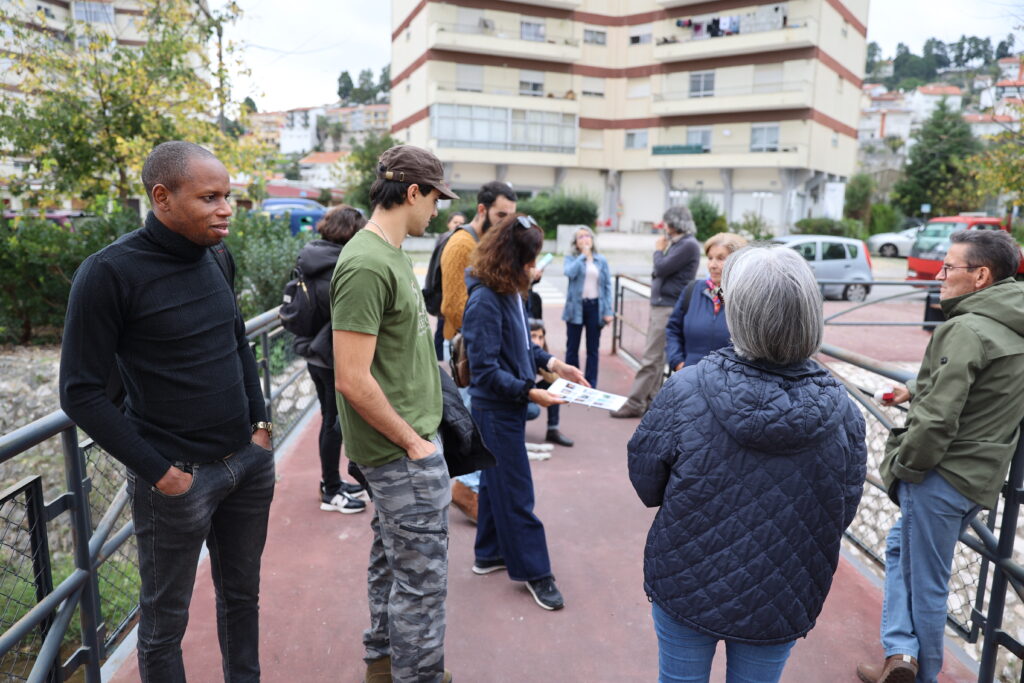
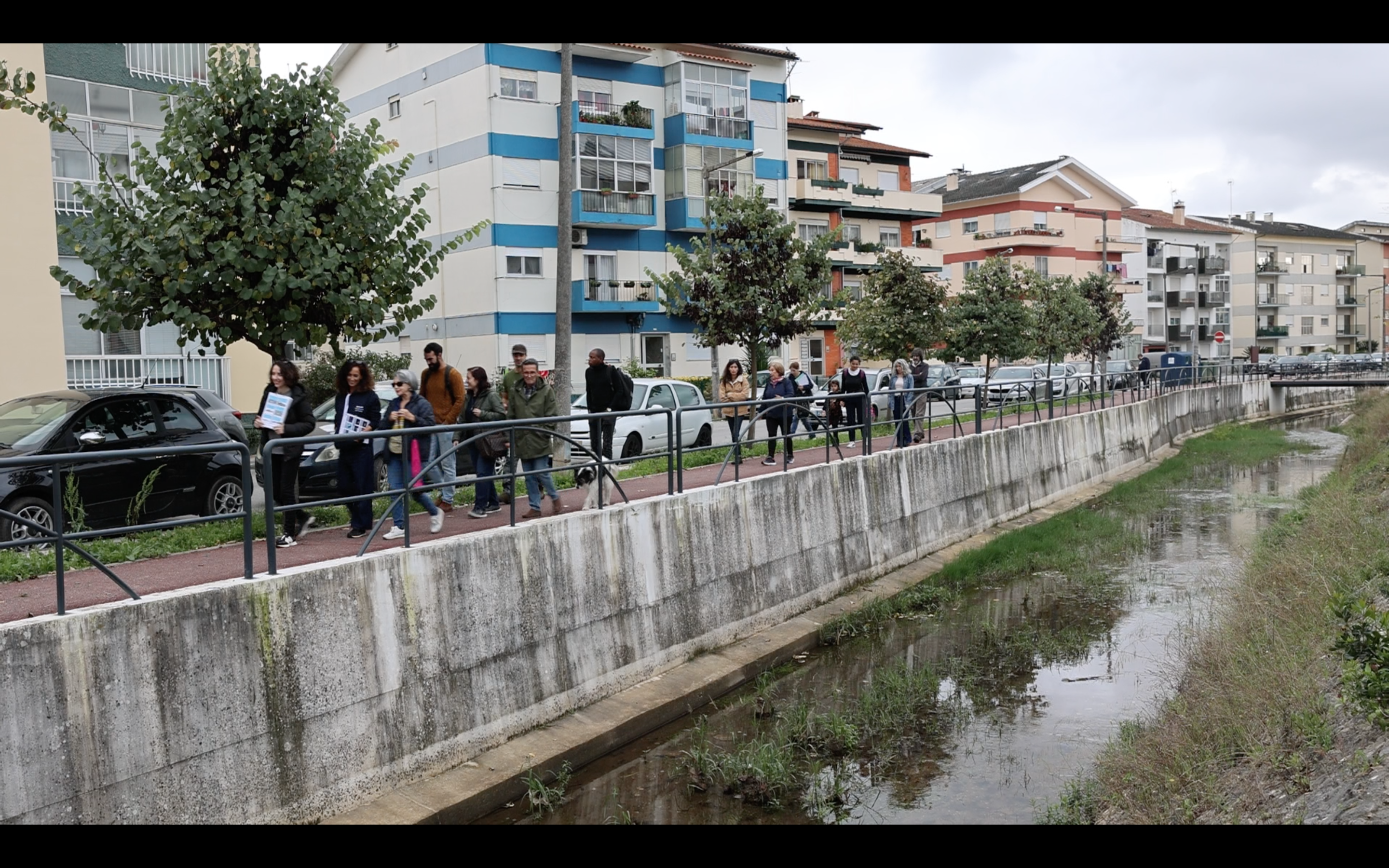
Rediscovering Ribeira de Coselhas: A community walk through time and biodiversity
On Saturday, February 22nd at 3 p.m., residents of São Romão and other citizens from Coimbra, gathered for a community walk along the urban stream of Ribeira de Coselhas. The event offered an opportunity to reconnect with the stream’s rich biodiversity and history while reflecting on the significance of this ecosystem and its transformation over time.
Approximately 30 participants—from children to older adults—assembled at a small historic chapel and set off on the walk accompanied by the Freshwater Ecology Lab Team from the University of Coimbra (MARE – ARNET).
The walk began at a downstream location where the team sampled benthic macroinvertebrates and made a quick identification of some groups with the participants. This demonstration highlighted a remarkable diversity of species, and many participants learned that certain aquatic organisms, insects, spend most of their lives underwater before transforming into terrestrial, flying adults. Along the margins, various plant species were also observed, with some participants recognizing those traditionally used for herbal infusions and medicinal purposes.
The event further served as a stage to celebrate local biodiversity and share memories of the stream’s past. Many recalled a time before the construction of Coimbra external ring road, when the area was predominantly farmland with few houses and when people would wash their clothes in the stream and fish. They remember to see eels swimming upstream from Mondego. An important family inhabited the valley since the XII century where they built a small palace and a church that are now in ruins
In the second part of the activity, the group proceeded upstream to where specially designed nets had been set up for the safe capture of birds. A certified expert demonstrated bird ringing (banding) techniques, explained the significance of the data collected, and then released all the birds back into their habitat.
Despite visible changes in the urban stream—such as areas affected by improper reed cutting—native riparian trees, like elderberry and elm, still thrive upstream near more developed zones, suggesting that these natural elements have endured for generations.
Participants expressed great surprise at the rich biodiversity encountered during the walk. Some, who had believed that the stream had lost much of its natural life, remained fascinated until the very end, while older residents recollected about species they remembered seeing more frequently in their youth.
Overall, the event was highly appreciated for fostering mutual learning and strengthening the community’s connection to its natural environment.
Members of the municipality and water agency also participated, as well as journalists of a local newspaper, which published an article in the following day. This led also to further contacts by other citizens which read the news and offered additional historical information about the stream.
